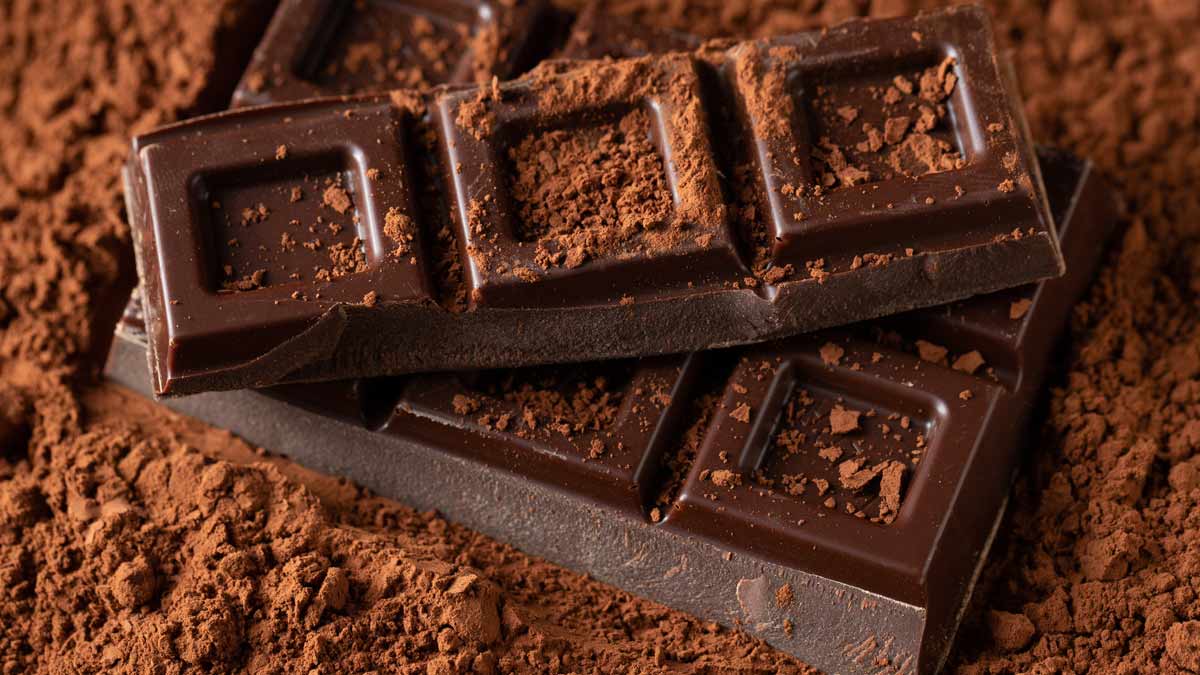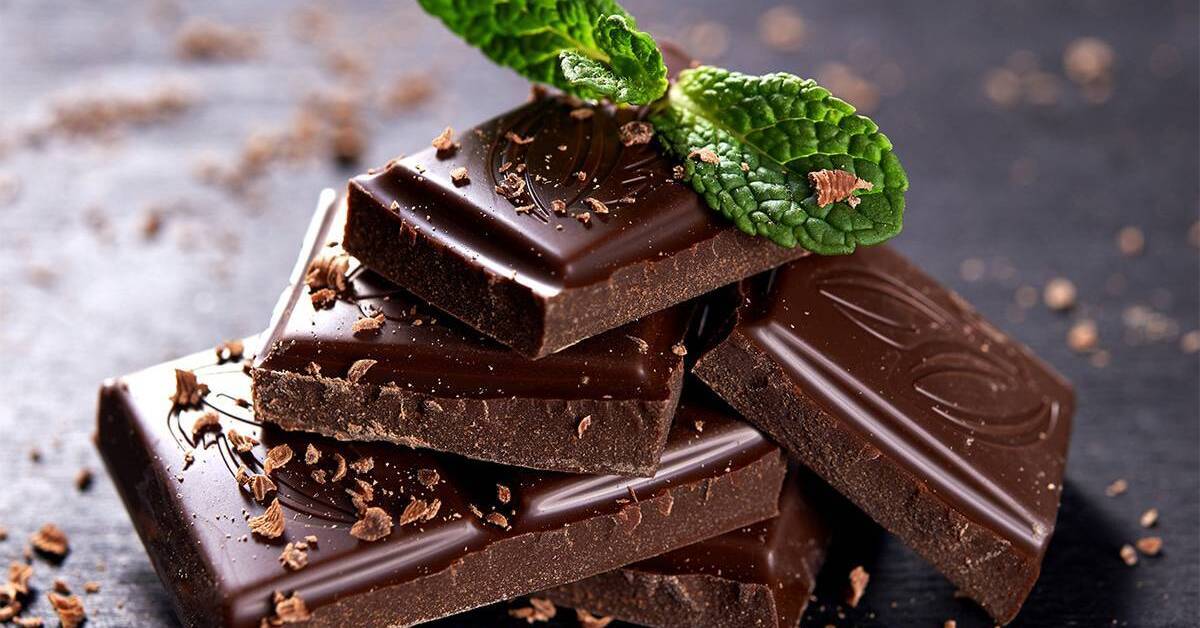
Dark chocolate. Just the name conjures images of rich, decadent indulgence, a truly unparalleled delight that brings a smile to countless faces. Whether it’s enjoyed as a velvety candy bar, a comforting hot drink on a chilly evening, or a luscious drizzle over a scoop of your favorite ice cream, dark chocolate has an undeniable way of sparking joy. But what if this delightful treat offered more than just momentary bliss? What if it held surprising secrets for enhancing your health, from bolstering your heart to uplifting your spirits? The wonderful news is that it absolutely can.
Indeed, dark chocolate stands out in the world of sweets, proving that a healthy lifestyle doesn’t demand the complete sacrifice of all pleasures. As Daniel Rodriguez Bauza, MD, a family medicine practitioner at Geisinger, wisely states, “Living in your best health is all about balance.” He adds, “A dark chocolate treat added to your diet can be a smart daily indulgence that helps you keep your health goals on track.” This isn’t just wishful thinking; it’s a concept increasingly supported by scientific research, painting dark chocolate as a true powerhouse of health benefits that can indeed make your heart, gut, and even your skin much happier.
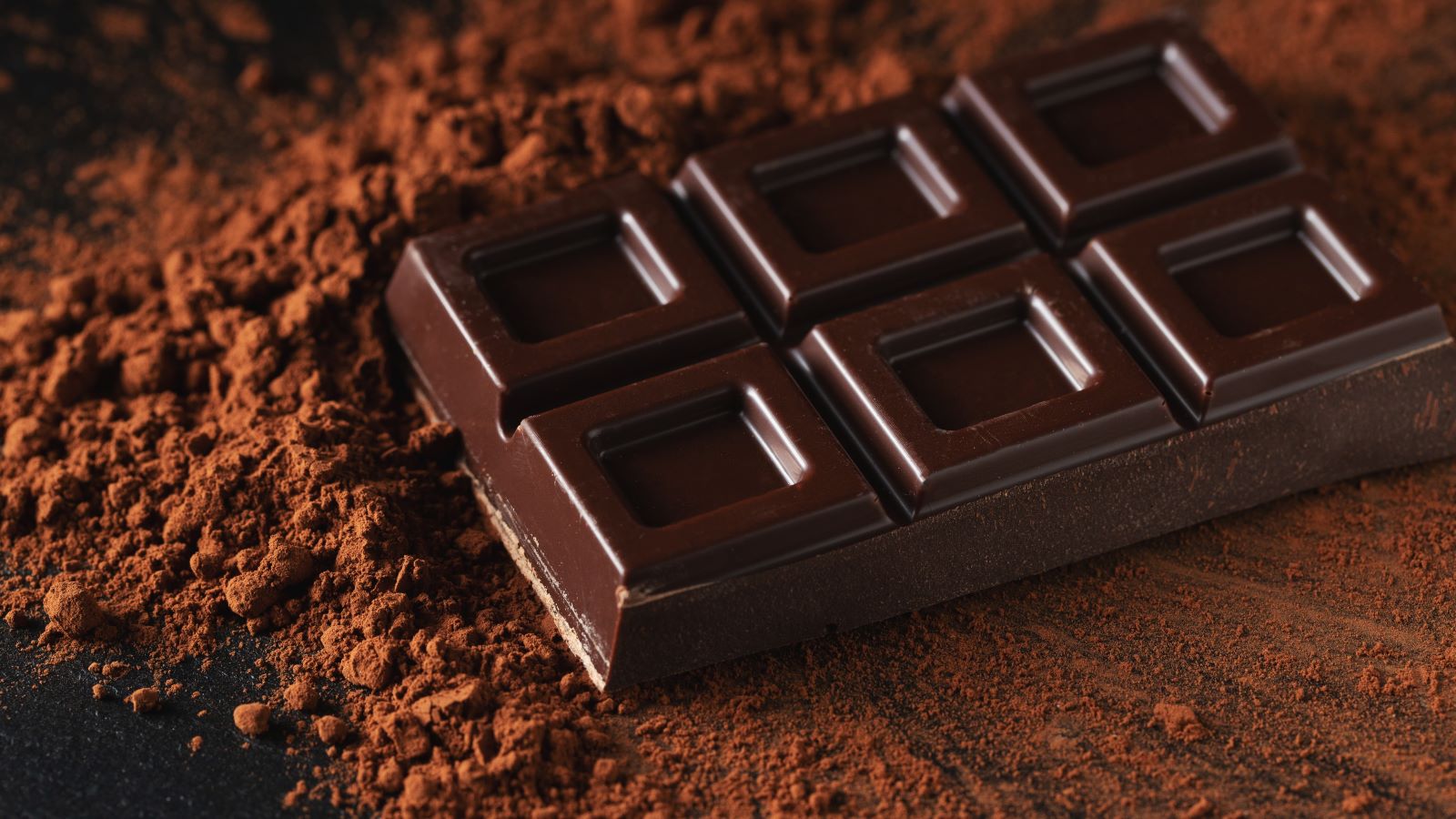
So, what exactly makes dark chocolate such a standout? When we compare it to its sweeter counterparts, milk chocolate and white chocolate, dark chocolate truly shines. The key lies in its composition. At their very core, all types of chocolate share similar foundational ingredients like cocoa butter, sugar, and cacao solids. However, their distinction lies crucially in the percentage of these cacao solids. As registered dietitian Devon Peart, RD, MHSc, BASc, explains, “Dark chocolate has between 50% and 90% cacao solids,” while “milk chocolate has between 10% and 50%.” This higher concentration of cacao solids in dark chocolate translates directly to lower levels of added sugar and fat compared to milk or white chocolate, making it a more wholesome choice.
Beyond its lower sugar and fat content, the nutritional value of dark chocolate is genuinely impressive, though it varies depending on the percentage of cacao solids. For instance, a 1-ounce serving of dark chocolate containing 70% to 85% cacao solids offers approximately 170 calories, 2.21 grams of protein, 12.1 grams of fat, and 13 grams of carbohydrates, with a modest 6.8 grams of sugar. But the benefits don’t stop there. Dark chocolate is also an excellent source of dietary fiber. As registered dietitian Beth Czerwony, RD, LD, highlights, “About one ounce of dark chocolate has about four grams of fiber.” This fiber content is not only beneficial for digestive health but can also contribute to feelings of fullness.
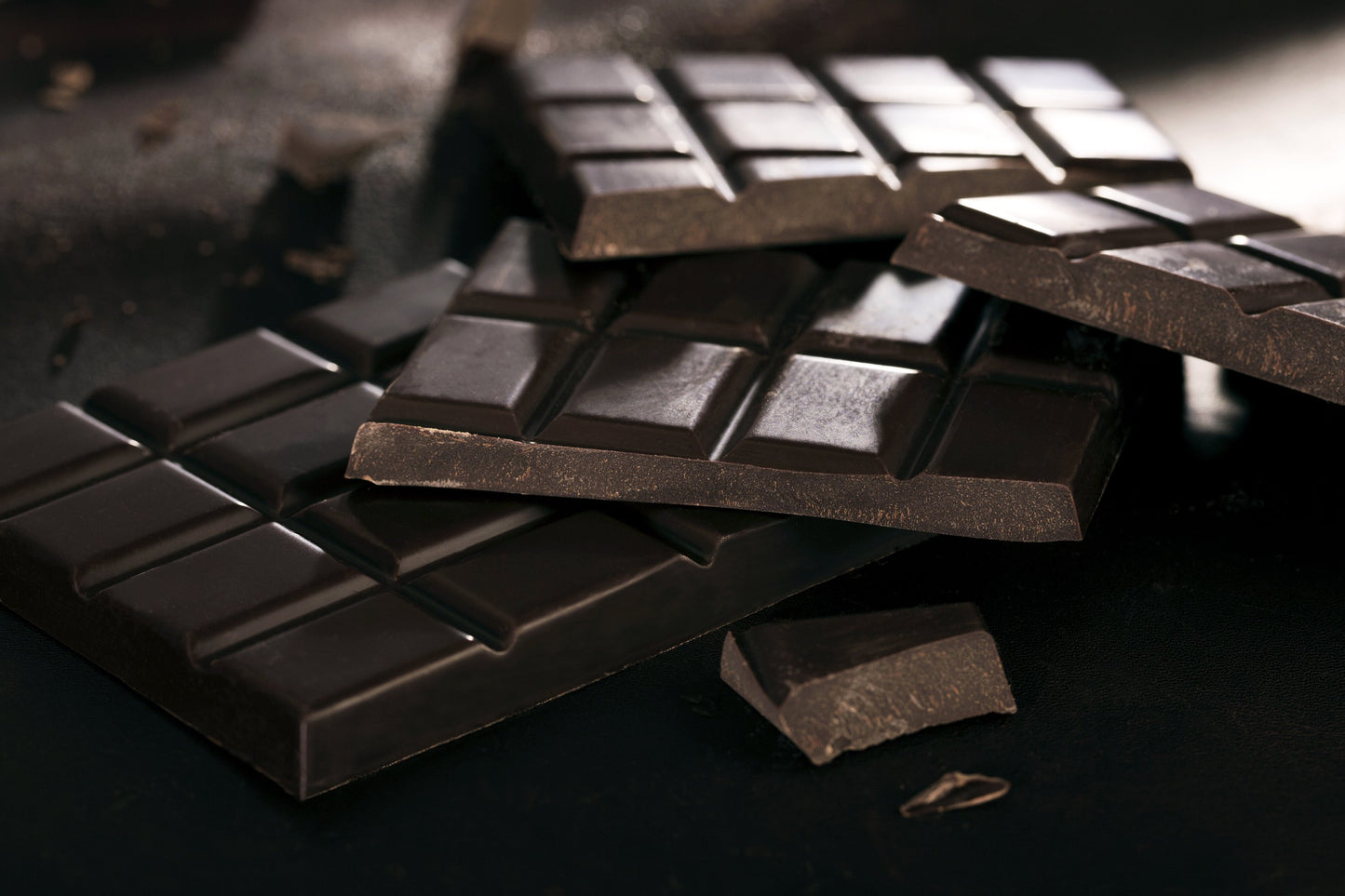
Moreover, dark chocolate is a veritable treasure trove of essential minerals that are crucial for overall bodily function. It is abundantly packed with iron, a vital component for healthy red blood cells and oxygen transport. You’ll also find a significant amount of magnesium, essential for muscle and nerve function, blood sugar control, and blood pressure regulation. Zinc, copper, and phosphorus are also present in meaningful quantities, contributing to immune function, energy production, and bone health, respectively. Some sources even note the presence of calcium, potassium, and traces of vitamins A, B, E, and K, underscoring its broad nutritional spectrum. A 100-gram bar of dark chocolate with 70–85 percent cocoa, for instance, contains an astounding 96 percent of the daily value (DV) for copper, 66 percent of the DV for iron, 57 percent of the DV for magnesium, and 39 percent of the DV for fiber, according to the U.S. Department of Agriculture (USDA).
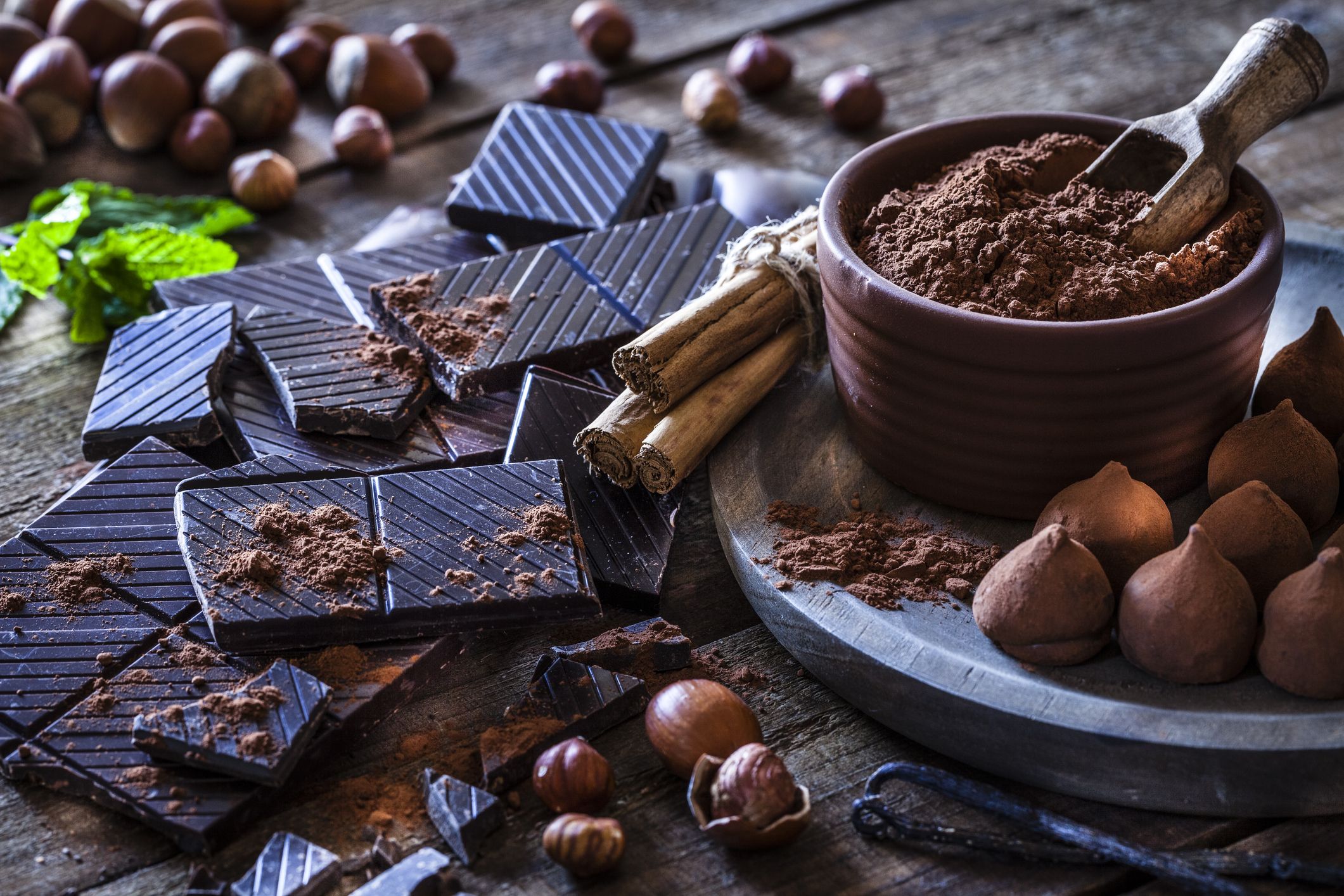
Now, let’s talk about the true heroes behind many of dark chocolate’s celebrated health benefits: flavanols. These incredible compounds, a type of polyphenol, are found in abundance in cacao solids—two to three times more in dark chocolate compared to milk chocolate. Flavanols are the natural defense chemicals of the cocoa bean, and they possess powerful antioxidant properties. Antioxidants are crucial because they help protect your body’s cells from damage caused by harmful free radicals, which can contribute to various chronic diseases. Professor Tim Spector, scientific co-founder of ZOE and an internationally renowned researcher, eloquently explains that chocolate “comes from a plant that is fermented to give it great complexity, so it’s a mixture of fiber and protein, and lots of essential nutrients and defense chemicals called polyphenols.” Dark chocolate is truly loaded with these beneficial compounds, holding several times more antioxidants than even green tea or red wine.
One of the most extensively studied and celebrated benefits of dark chocolate is its profound positive impact on heart health. The flavanols in dark chocolate play a pivotal role here, as they are intrinsically linked to the production of nitric oxide in the body. Nitric oxide is a powerful molecule that helps relax your blood vessels, leading to improved blood flow throughout your circulatory system. In turn, this improved circulation can contribute to lowering blood pressure. As Peart concisely puts it, “Improved blood flow means protection from heart disease.” While more studies are continuously underway to fully confirm the extent of these effects, the existing evidence is highly promising.

Beyond blood pressure regulation, research consistently indicates that dark chocolate may also contribute to healthier cholesterol levels, a cornerstone of cardiovascular wellness. Specifically, it has been shown to potentially help lower your “bad” LDL cholesterol while simultaneously increasing your “good” HDL cholesterol. Czerwony elaborates on this mechanism, stating, “Dark chocolate can help with cholesterol by decreasing LDL levels, which helps decrease the chances of plaque buildup in the arteries and may improve blood vessel function.” She adds, “Dark chocolate can also increase HDL levels, which is also cardio-protective.” This dual action against cholesterol is incredibly significant for maintaining a healthy heart and mitigating the risk of heart disease, as highlighted by numerous meta-analyses and prospective studies (Ren Y, et al. 2018; Yuan S, et al. 2017; Yang J, et al. 2024). Further studies have found that cocoa flavanols can reduce systolic blood pressure and that regular consumption of chocolate bars with plant sterols and cocoa flavanols, as part of a low-fat diet, may support cardiovascular health by lowering cholesterol and improving blood pressure.
The benefits extend further to include anti-inflammatory and anti-thrombotic properties, which means dark chocolate may help prevent blood clots and reduce inflammation, both crucial factors in preventing cardiovascular disease. Some research has even suggested that it could help prevent arteriosclerosis, the stiffness in arteries caused by plaque and fat buildup, by improving blood vessel flexibility and function (Rostami, A., et al. 2015). A comprehensive review study by Amoah I, et al. (2022) supported the notion that cocoa beverage and dark chocolate consumption can impact blood pressure, particularly in individuals with elevated blood pressure. This robust body of evidence firmly positions dark chocolate as a potentially valuable dietary addition for heart health.
If you’re seeking ways to sharpen your mind, boost your attention, improve your memory, and enhance your overall ability to learn, dark chocolate — and all those wonderful flavanols — might just offer a helping hand. While scientists continue to conduct extensive research, the improvements in brain health are thought to stem, in part, from the nitric oxide production that optimizes blood flow throughout your entire body, including your brain. As Peart insightfully explains, “Better blood flow is also good for cognition because you’re having more blood flow to the brain.” This enhanced cerebral circulation can directly translate to better cognitive performance and mental clarity.
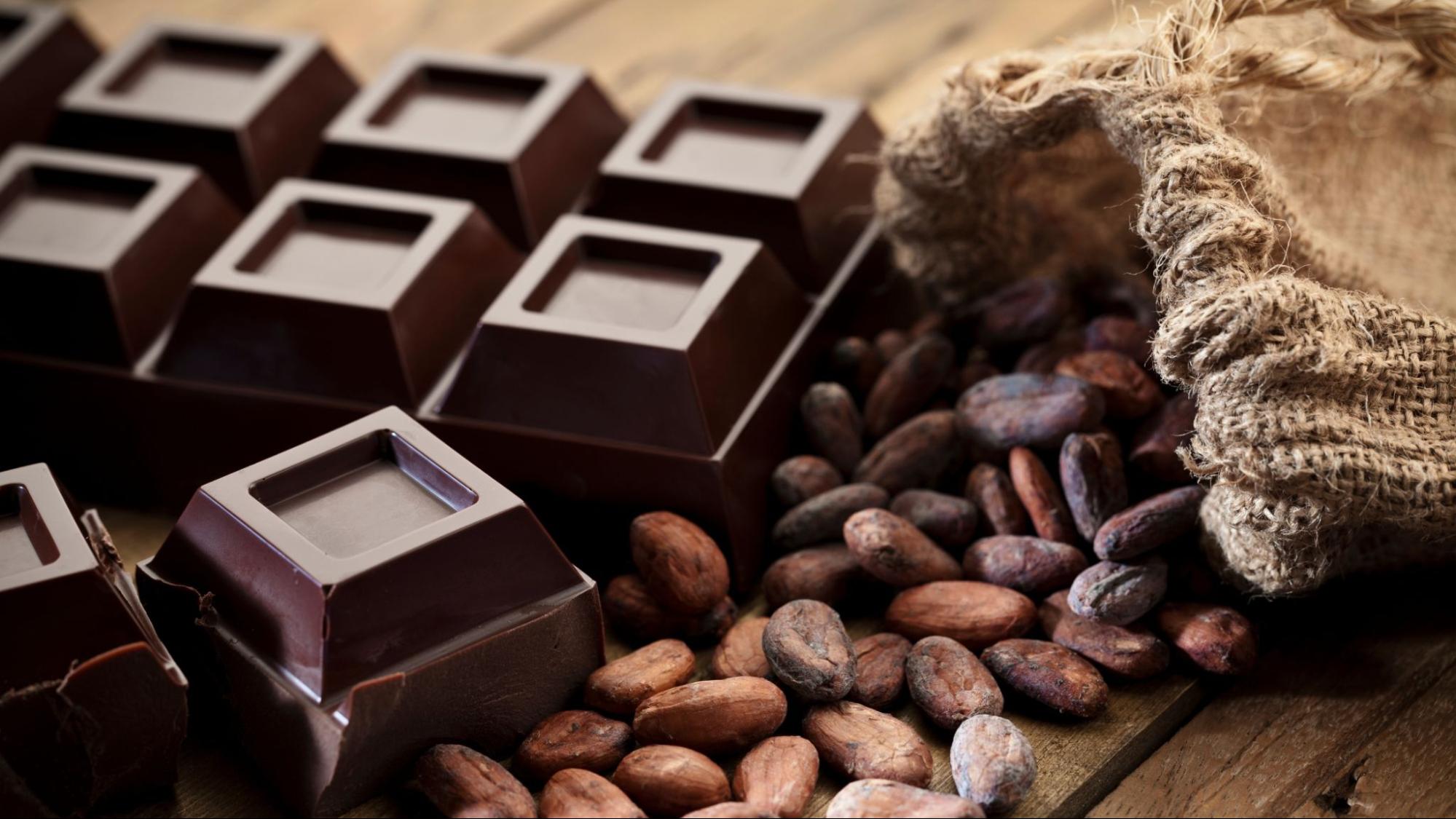
Beyond the long-term benefits of improved blood flow, dark chocolate may also provide a short-term boost to your brain function thanks to its natural caffeine content. Though significantly less than in a cup of coffee, the caffeine in dark chocolate can offer a mild stimulant effect, enhancing alertness and focus. Research has also explored the deeper implications of dark chocolate consumption on neurological health. There’s some compelling thought that regular consumption could potentially play a role in preventing neurodegenerative diseases such as Alzheimer’s and Parkinson’s, though further extensive research is definitely needed in these areas. Czerwony observes, “It may decrease your chances of dementia if you have a routine amount of dark chocolate in your diet.” This exciting prospect adds another layer to dark chocolate’s potential benefits for brain vitality. Studies by Calabrò RS, et al. (2019) and Martín MA, et al. (2020) have delved into the efficacy of cocoa polyphenols in treating mild cognitive impairment and the effect of cocoa products on cognitive performance in young adults, respectively, while a 2016 study in the journal *Appetite* showed a positive association between habitual chocolate intake and better cognitive function across various neuropsychological tests, including visual-spatial memory and abstract reasoning (Crichton, G. E., et al. 2016).
Good news for anyone who finds solace and upliftment in a piece of dark chocolate: that feeling of enhanced well-being is not just anecdotal; it’s rooted in science. Dark chocolate has long been intuitively associated with feelings of pleasure and enjoyment, and scientific inquiry is starting to uncover the physiological reasons behind this connection. One significant factor is the presence of polyphenols, which can influence stress hormones. Peart clarifies this mechanism, stating, “Polyphenols also lower cortisol, which is a stress hormone.” Cortisol, often dubbed the “stress hormone,” when consistently elevated, can have detrimental effects on both mental and physical health. By helping to mitigate cortisol levels, dark chocolate may contribute to a more balanced and positive mood state.
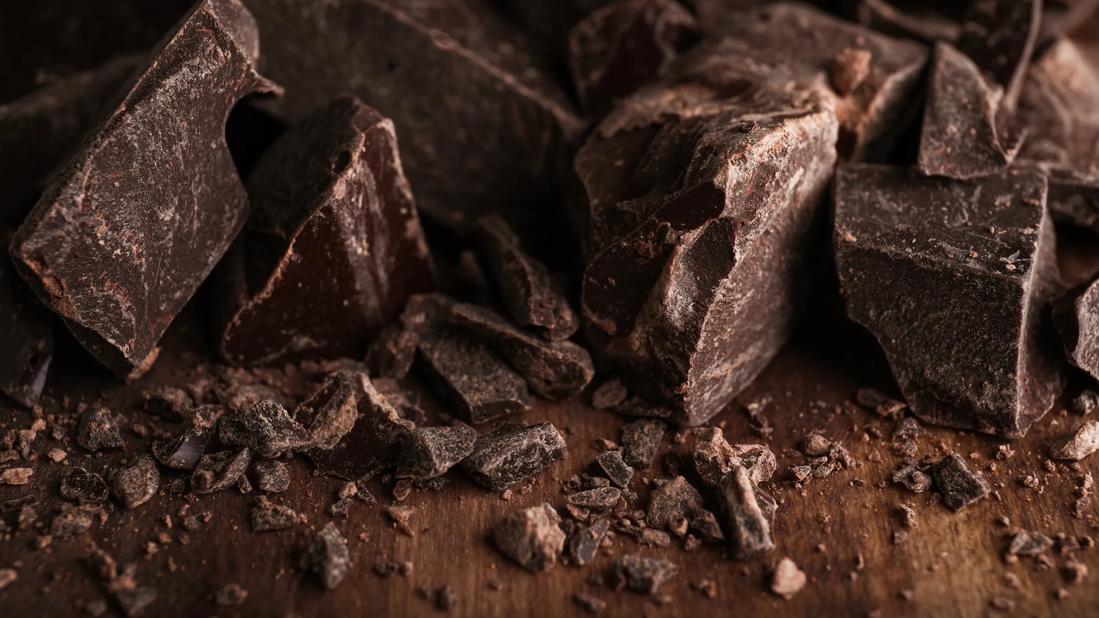
Compelling research further supports this mood-boosting effect. A 2022 study published in the *Journal of Nutritional Biochemistry* compared participants who ate 85% dark chocolate daily with others who consumed chocolate with less cocoa or no chocolate at all over a three-week period. The findings were quite remarkable: “Daily consumption of dark chocolate significantly reduced negative affect in DC85, but not in DC70.” This suggests that the higher cocoa content might be particularly effective in fostering a more positive psychological state. So, the next time you reach for a square of dark chocolate, know that you might genuinely be doing something good for your emotional well-being, transforming a simple pleasure into a scientific mood enhancer.”

